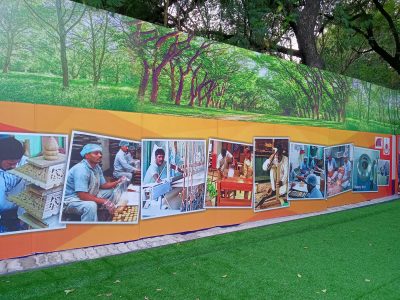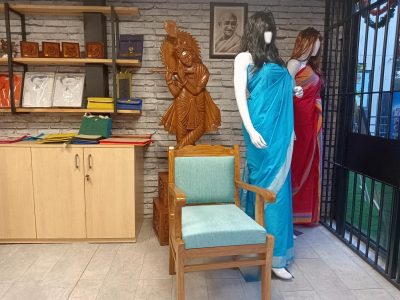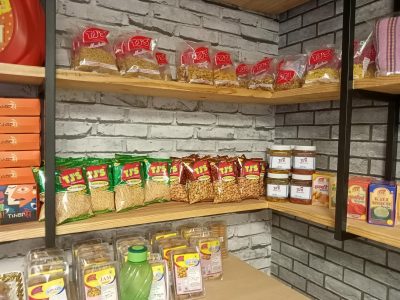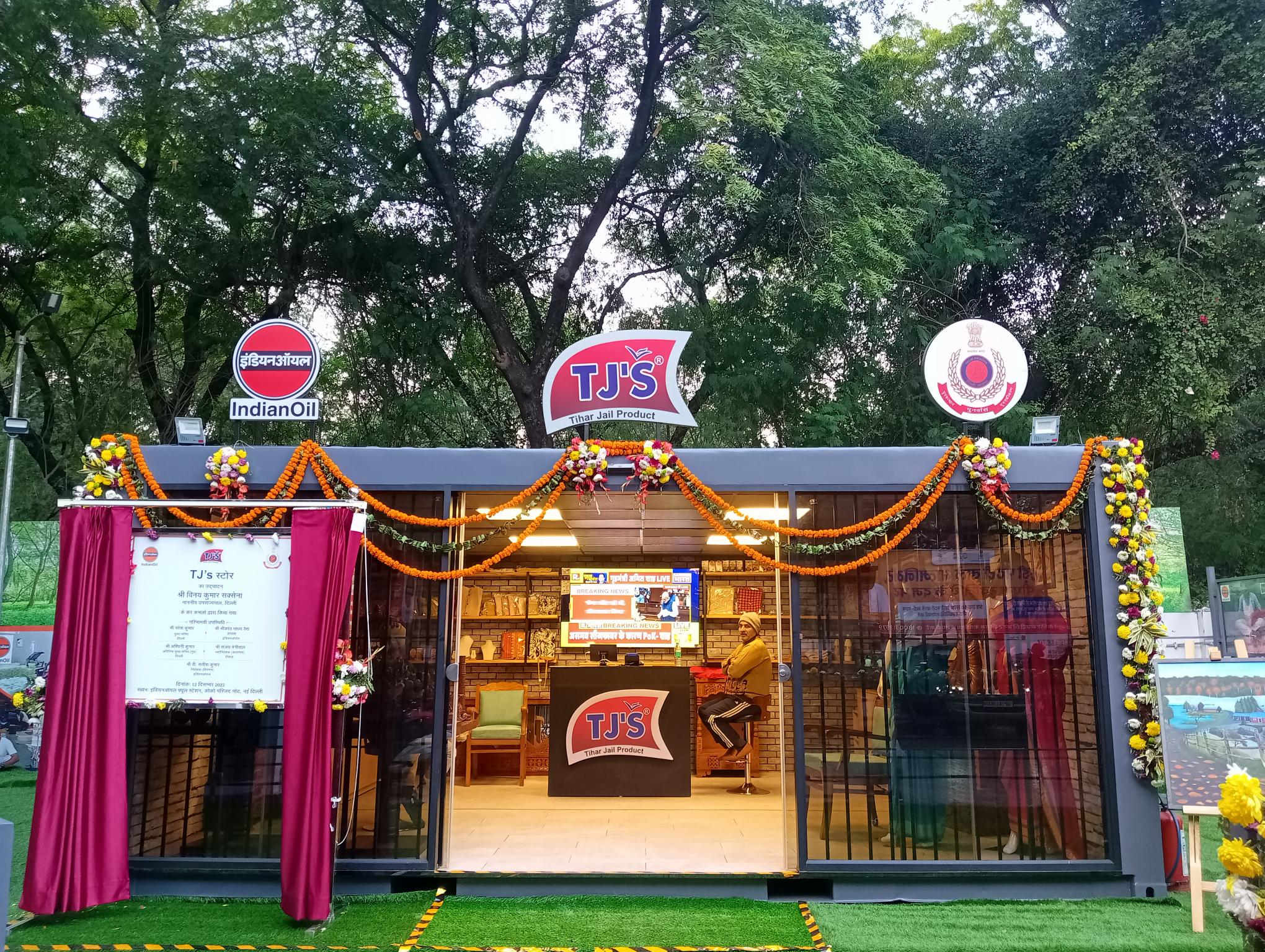At a corner of the Indian Oil petrol pump at Masjid Moth, shelves are neatly stocked with an array of products, ranging from delectable snacks to fashionable clothes and even finely crafted furniture. Every item bears the Tihar Jail label and a mark of meticulous craftsmanship.
The Jail has its own brand called TJ’s, complete with the tagline ‘A Tihar Jail Initiative’, and its products are sold at government spaces such as the courts. However, what sets it apart this time is that it is located at a public place, facilitating reintegration of the inmates into the society.
As you step through the door, the air is heavy with anticipation and the soft hum of life’s stories in the making.
Two inmates, clad in simple uniforms, stand behind the counter, ready to assist with a genuine smile. Their eyes tell tales of resilience and redemption, each transaction a step towards rebuilding their lives.
They produce soaps, shampoos, detergent powder, and eatables like snacks, cookies, pickles, and masalas under this brand. Another sub-brand for slightly up-market cosmetics is called ‘Antarkranti’. That roughly translates to the “inner revolution”.

A customer approaches, eyeing a finely crafted wooden table. “Made within the prison walls,” shares one of the inmates with little expression. The customer, moved by the revelation, runs her fingers over the smooth surface.
While many conversations were initiated, the inmates were largely quiet as they are instructed and bound by rules.
“We cannot answer any of these queries,” said one inmate, with a smile on. “Please speak to sir,” he said pointing towards a cop, who was on duty.
A young woman contemplates around a rack of clothes.
“These garments tell stories of strength,” one of the inmates explains, his eyes lighting up. The woman picks up a saree, imagining the journey it took from the hands of an artisan behind bars to the hanger in her hand.
“Our sole motive is to keep inmates engaged and in the course of such artistic tasks, they introspect and transform. That’s the whole point. All these years, we kept these products limited to government offices and this is the first time that the inmates are selling what they have created at a public place,” said the official, who did not wish to be named.

The store receives close to 15 customers every day, he added.
In the snack section, a man examines a bag of artisanal chocolates. “Try these,” suggests one of the inmates with a genuine smile.
“Crafted with passion inside the jail kitchen,” they share, as the man nods, appreciating the subtle sweetness of both the chocolate and the newfound connection.
As more people walked in, there were more exchanges between customers and the inmates. However, it was strictly about the items on the shelf and no personal interaction was allowed.
“Did you make these?” a customer asked, looking at one of the inmates. With a warm smile, the inmate replied, “Yes, we did. Most of the baked items are done by our women inmates. Try one.”
After the day’s work, the inmates take a bus ride back to the jail and come back the next morning sharp at 9am to begin the sale. The Tihar prison complex is located in Janakpuri, approximately 3 km from Tihar village in west Delhi.
There were also garments like branded men’s shirts, carpets, home linen, handbags besides handmade paper products, and stationery items among many things. Their website states that the initiative has ISO quality certification.

“We had been trying to open a store at a public place, but there are certain norms that we have to follow. We have to sign a Memorandum of Understanding (MoU) with the organisation and then proceed with it. So far, we were not getting organisations that would support the cause, until Indian Oil Corporation Limited (IOCL) joined us as part of their corporate social responsibility (CSR) initiative. Hence, we set it up here,” said Arvind, the Public Relations Officer of the Tihar Jail.
The snack section boasts an impressive assortment of treats, from crunchy snacks to artisanal chocolates, all prepared within the confines of Tihar Jail.
The products on the shelves carry more than just their physical presence; they embody stories of resilience, hope, and the unyielding spirit of those who have found solace and purpose within the confines of Tihar Jail.
The furniture section unfolds, revealing pieces that transcend functionality from tables, chairs, to sofa.
The store becomes a haven for shared stories and unspoken understanding. The soft hum of conversations and the gentle clinking of shopping baskets fill the air as customers browse through the aisles.
The TJ’s store had a humble beginning when, in 1961, the jail factory was established. Its primary purpose was to transform inmates into productive members of the society by teaching them gainful occupations. Only convicted prisoners participate in this programme.
Activities include carpentry, weaving using handloom and power-loom, handmade paper, tailoring, metal work, baking and preparing namkeen items. A shoe manufacturing unit was also added in 2009.
These activities, which started on a small scale, have now progressed into TJ’s, which makes a comprehensive range of products from jewellery to detergents.
The lion’s share of its revenue, 65%, comes from the carpentry store, whose products are distributed all over government offices in the NCR region. With a diverse product portfolio, TJ’s markets everything from mustard oil to blankets and disinfectants.
TJ’s revenues are used for buying raw materials and ingredients for TJ’s manufacturing activities. A specific segment pays inmates’ salaries, and the remaining meets the jail budget. However, 25% of the inmates’ earnings are deposited in the Victim Welfare Fund, which provides compensation to the victims and their families.





